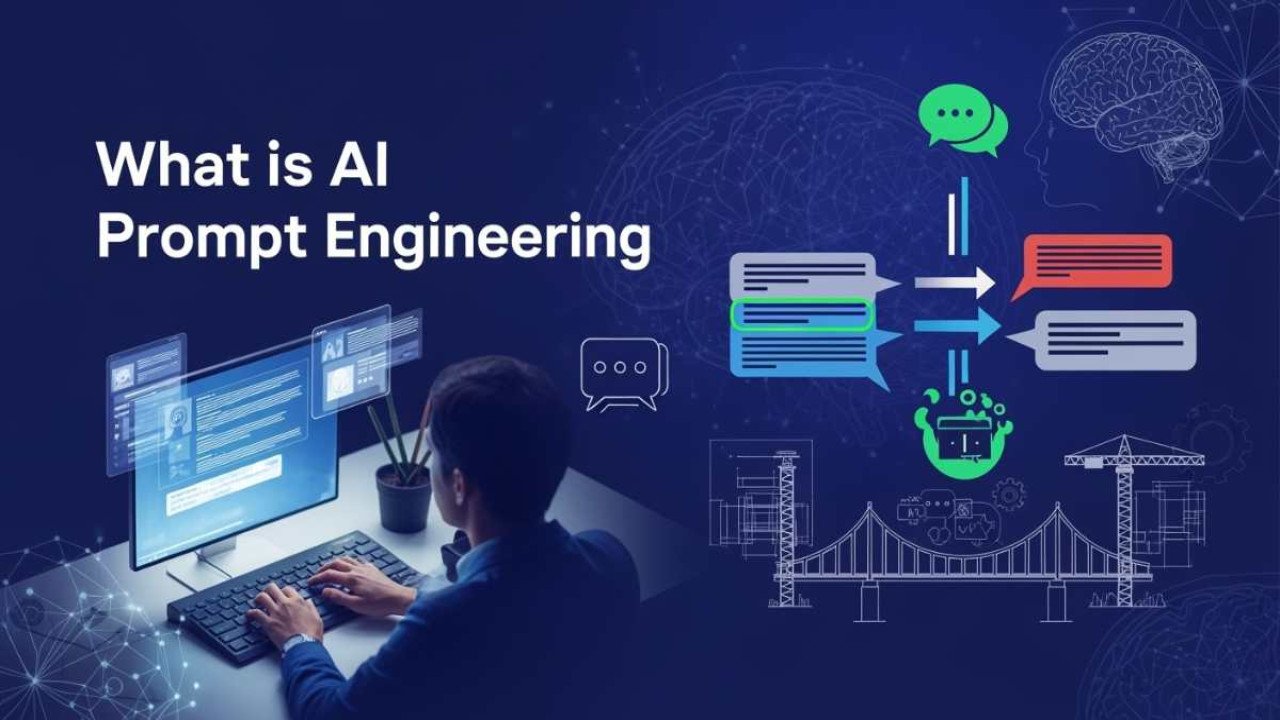What is AI Prompt Engineering
Okay, let's be real for a second. A year ago, if someone told me "prompt engineering" was going to be one of the hottest tech skills, I would've asked them what they were smoking. I mean, come on, writing better questions for a computer? That's a job now?
But here I am, eating my words. After diving deep into this world and seeing what skilled prompt engineers can do, I'm convinced this might be one of the most important skills of the next decade. And the crazy part? You don't need a computer science degree to get started.
So let me break down what AI prompt engineering actually is, why it matters more than you think, and whether this might be something you should pay attention to.
What Exactly Is AI Prompt Engineering?
Think of it this way: imagine you've got an incredibly smart friend who knows pretty much everything but is also really, really literal. They can help you with almost anything, but only if you ask the right questions in the right way.
That's basically what AI prompt engineering is: it's the art and science of crafting the perfect instructions for AI systems to get the results you want.
But here's where it gets interesting. It's not just about writing better questions. A good prompt engineer understands:
- How AI systems actually process information (spoiler: it's not like human thinking)
- What makes one prompt work better than another (and trust me, small changes can make huge differences)
- How to get consistent, reliable results instead of playing the lottery every time
- How to solve complex problems by breaking them down into AI-friendly steps
I like to think of prompt engineers as translators. They translate human needs into AI language, and then translate AI capabilities back into business value.
Why This Became a Thing (And Why It's Not Going Away)
Here's what happened: AI got really, really good, really fast.
A few years ago, AI could barely write a coherent paragraph. Now? GPT-4 can write marketing copy, debug code, create lesson plans, analyze data, and have philosophical debates. The technology leaped forward so quickly that we suddenly had these incredibly powerful tools... but most people had no idea how to use them effectively.
It's like someone handed everyone a Formula 1 race car, but nobody knew how to drive a stick shift.
That's where prompt engineering came in. Some people started figuring out the “tricks,” the specific ways to communicate with AI that consistently produced better results. And when I say better, I mean dramatically better. We're talking about the difference between getting generic, useless responses and getting output that looks like it came from a highly skilled professional.
Companies started noticing. Why hire expensive consultants when a skilled prompt engineer could get an AI to produce similar quality work in minutes instead of weeks?
What Does a Prompt Engineer Actually Do All Day?
This is where people get confused. They think prompt engineers just sit around typing questions into ChatGPT all day. That's like saying a chef just heats up food.
Here's what prompt engineering actually involves:
Research and Analysis
Before writing a single prompt, good prompt engineers spend time understanding:
- What the business actually needs (not what they think they need)
- What the target audience cares about
- What success looks like for this specific project
- Which AI models are best for different types of tasks
Prompt Design and Testing
This is the creative part. They craft prompts that:
- Give the AI the right context and background
- Set clear expectations for tone, style, and format
- Include examples of good vs. bad outputs
- Account for edge cases and potential problems
Optimization and Iteration
Here's the part most people don't see: prompt engineers spend a lot of time refining and improving prompts. They'll test dozens of variations to find what works best, track performance metrics, and continuously optimize for better results.
Documentation and Training
They create systems so other people can use their prompts effectively. This means writing clear instructions, creating templates, and training team members.
Problem Solving
When AI outputs go wrong (and they do), prompt engineers figure out why and fix it. It's like debugging code, but for language.
The Career Side: Is This Actually a Real Job?
Short answer: yes, very much so.
Longer answer: We're seeing prompt engineering roles across pretty much every industry that's adopting AI. Here's what the job market looks like:
Types of Prompt Engineering Roles
Dedicated Prompt Engineers - These folks focus entirely on developing and optimizing prompts for AI systems. Salaries range from $80K to $200K+, depending on experience and company size.
AI Content Specialists - They combine prompt engineering with content strategy, helping companies scale their content creation with AI.
Conversation Designers - They focus specifically on chatbots and conversational AI, designing the interactions between humans and AI systems.
AI Training Specialists - They work on improving AI models by designing better training prompts and evaluation criteria.
What Employers Are Looking For
- Strong communication skills (this is actually the #1 requirement)
- Understanding of AI capabilities and limitations
- Experience with different AI platforms
- Analytical thinking and problem-solving ability
- Domain expertise in relevant fields (marketing, customer service, etc.)
The Surprising Truth About Requirements
Here's what's interesting: most prompt engineering jobs don't require traditional programming skills. They're looking for people who understand language, psychology, and problem-solving more than people who can code.
Real-World Applications (This Is Where It Gets Exciting)
Let me share some examples of what skilled prompt engineers are actually accomplishing:
Content Creation and Marketing
I know a prompt engineer who helped a small marketing agency increase its content output by 500% while maintaining quality. They developed prompts that could generate everything from blog posts to social media campaigns, each customized for different client voices and audiences.
Customer Service
Another company I heard about reduced their customer service response time from hours to minutes by training AI chatbots with carefully engineered prompts. The AI can now handle 80% of inquiries without human intervention.
Education and Training
Educational companies are using prompt engineering to create personalized learning experiences. The AI can adapt explanations to different learning styles, create practice problems at the right difficulty level, and provide feedback that actually helps students improve.
Skills You Need (And How to Develop Them)
If you're thinking about getting into prompt engineering, here's what you should focus on:
Essential Skills
Communication and Language - You need to be really good at explaining things clearly and understanding nuance in language.
Analytical Thinking - Prompt engineering is basically applied problem-solving. You need to break complex problems into smaller, AI-solvable pieces.
Understanding of AI Capabilities - You don't need to know how to build AI models, but you need to understand what they can and can't do well.
Domain Knowledge - The best prompt engineers combine AI skills with deep knowledge in specific fields (marketing, finance, education, etc.).
How to Get Started
Start Experimenting - Pick an AI platform (ChatGPT, Claude, etc.) and start playing with it. Try different approaches and see what works.
Study Successful Prompts - There are communities and resources where people share effective prompts. Study them and understand why they work.
Practice Different Types of Tasks - Don't just stick to one type of prompt. Try creative writing, analysis, problem-solving, code generation, etc.
Learn from Failures - When prompts don't work, figure out why. This is often more valuable than studying successes.
Build a Portfolio - Document your best prompts and the results they produced. This becomes your proof of skill when looking for jobs.
Should You Care About This?
Here's my honest advice: even if you never become a full-time prompt engineer, learning these skills will probably benefit your career.
We're moving into a world where AI is becoming as common as email or spreadsheets. People who can effectively work with AI will have a significant advantage over those who can't.
The good news? You don't need to quit your job and become a prompt engineer tomorrow. You can start small:
- Learn to use AI tools more effectively in your current role
- Practice prompt engineering as a side skill
- Look for ways to apply AI in your current industry
- Build a basic understanding of what's possible
Conclusion
AI prompt engineering isn't just about talking to computers better (though that's part of it). It's about bridging the gap between human needs and AI capabilities. As AI becomes more central to how we work, the people who can do this bridging effectively will be incredibly valuable.
The AI revolution is happening whether we participate or not. Prompt engineering is one way to be part of shaping it instead of just letting it happen to you.












Comments (0)
No comments found